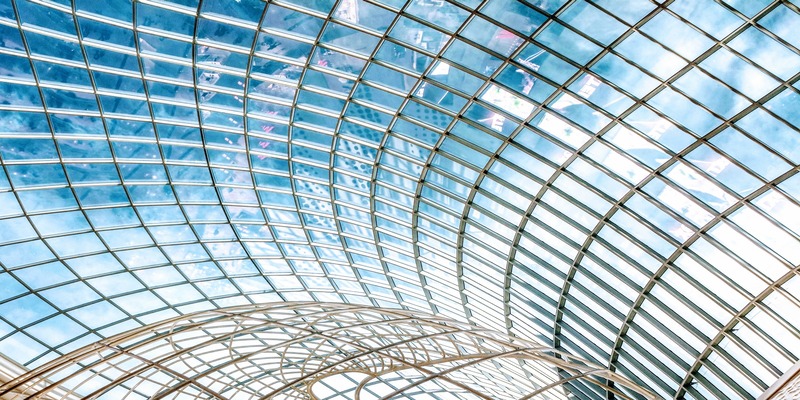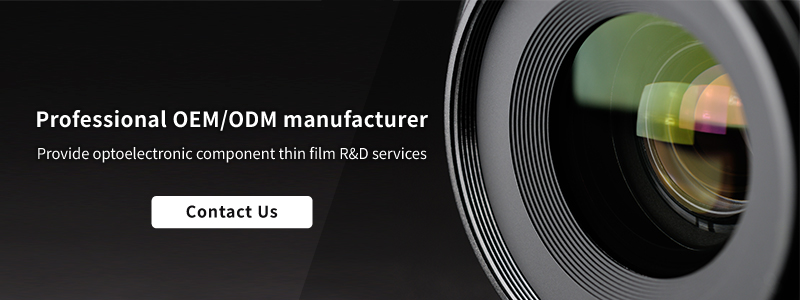- Home
- Blog
- Glass Processing
- The Power of Chemical Glass Strengthening
The Power of Chemical Glass Strengthening

Glass can be strengthened via tempering or chemical treatment. However, the results of these two methods may differ due to differences in the manufacturing process and change in composition. Chemically strengthened glass is processed via ion exchange, while conventional strengthened glass is toughened via a physical process called tempering. This article will be introducing the advantages and manufacturing processes of chemically strengthened glass.
What Is Chemical Glass Strengthening?
Chemically strengthened glass is a type of glass that undergoes special treatments to become tougher and more resistant against scratches than usual glass. Process typically includes chemical methods or heat treatment. The surface of chemically strengthened glass can enhance the resistance against compression, bending, and impact, while increasing the overall strength and hardness. Below is an introduction to the manufacturing process of chemically strengthened glass. The actual process may vary depending on the requirements of the product. The steps are:
1. Glass Selection: The first step is to choose a suitable glass substrate, usually soda-lime glass or aluminum silicate glass.
2. Glass Cutting: The glass substrate is cut into desired sizes and shapes.
3. Ion Exchange: The cut glass is immersed into an alkaline solution. This is a process called ion exchange. Sodium ions are replaced by larger potassium or cesium ions. This creates a layer of compressive stress on the glass surface, enhancing the strength and resistance.
4. Washing and Cleaning: After ion exchange, the glass needs to be washed and cleaned to remove any chemical residues.
5. Heat Treatment: The glass is subjected to heat treatment in a high-temperature chamber in order to stabilize the effects of ion exchange on the glass surface. This treatment further increases the strength and stability of glass.
6. Rapid Cooling: The glass is rapidly cooled after heat treatment. It can be done by air or different cooling medium. This helps maintain the compressive stress on the glass surface.
7. Inspection and Testing: The produced chemically strengthened glass will undergo strict inspection and testing, including visual inspection, strength testing, and other performance tests, to ensure the quality.
〈Read More:What are the Different Types of Glass Processing and Glass Finishing?〉
The difference between Thermal Glass Tempering and Chemical Strengthening
Both tempered glass and chemically strengthened glass undergo special treatments to enhance the strength and safety. The main difference between tempered glass and chemically strengthened glass is the manufacturing process. Tempered glass is typically strengthened via tempering, while chemically strengthened glass is strengthened via ion exchange. The other difference is the change in composition. The chemical treatment of chemically strengthened glass will result in composition change including ion exchange. On the other hand, tempered glass mainly undergoes physical processes that do not involve a composition change.
Comparison table of Tempered glass and chemically strengthened glass
|
|
Tempered glass | Chemically strengthened glass |
|---|---|---|
| Process | Strengthened via tempering | Strengthened via ion exchange |
| Change in Composition | Mainly undergoes physical processes, with no change in composition. | Chemical treatments may lead to surface compositional changes, such as ion exchange. |
| Glass Hardness | Mainly undergoes physical processes, with no change in composition. | Surface hardness and strength are relatively higher, providing better scratch resistance and durability. |
| Applications | Construction industry and automotive industry. | Energy sector, healthcare industry, and semiconductor industry. |
Benefits of Chemical Glass Strengthening
Chemically strengthened glass is typically processed via chemical methods or heat treatment. After undergoing special treatments, it maintains high transparency while being tougher and more resistant against abrasion compared to usual glass. Chemically strengthened glass is resistance against compression, bending, and impact. Also, it shows good hardness, thereby improving safety. When chemically strengthened glass breaks, it tends to break into tiny pieces, reducing the risk of injury to individuals
Applications of chemically strengthened glass
Chemically strengthened glass, characterized by its high strength, hardness, and resistance against abrasion and scratches, can be widely used in various fields and industries. For example, it is used in the fields of consumer electronics, energy sector, telecommunications, semiconductor manufacturing, laboratories, and healthcare industry. Additionally, it is utilized in the automotive industry, construction industry, home decor, and even scientific instrumentation. Below, we will provide an overview of the applications in the fields of energy, telecommunications, semiconductor manufacturing, laboratories, and healthcare.
Energy industry
Chemically strengthened glass has various applications in the energy sector, including solar panel covers. Chemically strengthened glass can serve as a protective covers for solar panels, enhancing the weather resistance and extending the lifespan of solar panels. It also helps improve the efficiency and longevity of solar panels. Additionally, it is used in the wind energy sector, where chemically strengthened glass is equipped into wind turbine blades to enhance the strength, durability, and resistance against wear and tear, thus increasing the efficiency of wind power generation.
Telecommunications industry
Chemically strengthened glass is commonly used for screens in smartphones and tablets, requiring resistance against scratches and shattering while maintaining high transparency. Similarly, the protective glass for television screens and monitors is often chemically strengthened in order to ensure visual performance and durability. For tablets and laptops, chemically strengthened glass provides high durability and protection for the screen. In addition to televisions and tablets, it can also be applied to camera lenses, while certain camera lenses utilize chemically strengthened glass to increase durability and scratch resistance.
Semiconductor industry
Chemically strengthened glass also plays an important role in the semiconductor industry, maily in applications such as reaction chambers and vacuum chambers, whereas the glass requires high abrasion resistance, high transparency, and superior chemical stability to ensure process reliability. During semiconductor manufacturing, optical inspection systems are used to monitor processes and detect the defects of components. Chemically strengthened glass can be used as covers for these optical components, providing high transparency and protection.
Laboratories and hospitals
Chemically strengthened glass is commonly used in specific places such as hospitals or laboratories to enhance safety, durability, and performance. For hospital operating rooms and surgical equipment, chemically strengthened glass may be used as a cover for surgical lights to ensure high transparency and clarity. Additionally, display panels of some equipment may also utilize chemically strengthened glass to enhance scratch resistance.
Chemically strengthened glass is frequently used in laboratories due to its high strength, scratch resistance, and chemical corrosion resistance, making it realize specific requirements in laboratory environments. For example, chemically strengthened glass is used for laboratory doors and windows to enhance safety and impact resistance, reducing the risk of accidents during laboratory work. High-precision scientific instruments in laboratories, such as spectrometers, microscopes, and spectrophotometers, also employ chemically strengthened glass to ensure high transparency and durability.
Superior Chemically Strengthened Glass Manufacturer - YANG EN TECH CO., LTD.
The chemically strengthened glass we manufactured stands out for its exceptional qualities, which encompass not only high strength, abrasion resistance, and remarkable transparency but also a host of other advantageous properties.As a testament to our commitment to meeting diverse customer needs, our chemically strengthened glass can be tailored to specific requirements, ensuring optimal performance and satisfaction.
In the automotive industry, our chemically strengthened glass has been particularly appled in central control panels, while these panels demand materials that can maintain clarity and resilience against scratches and impacts. Our chemically strengthened glass has been providing automotive manufacturers with a reliable solution.
Moreover, the exceptional resistance to strong acids and alkalis, as well as high stability even at high temperatures, makes our chemically strengthened glass as a preferred option for sensor packaging, lens packaging, panel covering, and numerous other industrial and commercial settings.
With our dedication to innovation and quality, we are continuing to set new benchmarks in chemically strengthened glass to enable our clients to excel in their professional fields.
Conclusion
Chemically strengthened glass is used in everyday life and technology applications. YANG EN TECH CO., LTD. have over 15 years of experience in providing services including optical coating designs, optical filter manufacturing, glass processing/finishing, and all kinds of optical coatings. Should you have any requests for chemically strengthened glass, please do not hesitate to Contact us!

